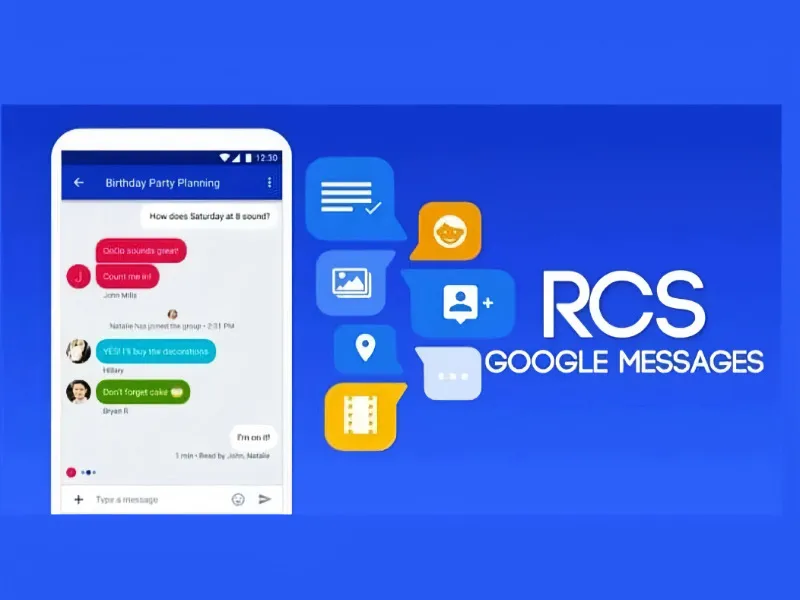- Rich Communication Services represent the next leap forward in messaging technology, moving beyond the limitations of SMS.
- The technology is poised to become a cornerstone of digital communication, bridging the gap between basic text messaging and fully interactive, multimedia-rich interactions.
Rich Communication Services (RCS) are emerging as a pivotal technology, transforming the way we connect and engage with one another. Unlike traditional SMS, which offers a basic text messaging experience, RCS ushers in a new era of interactive and immersive communication, brimming with potential and promise.
The evolution of messaging: From SMS to RCS
Rich Communication Services represent the next leap forward in messaging technology, moving beyond the limitations of SMS. While SMS has served its purpose over the decades, providing a basic platform for text-based communication, it lacks the rich functionality and user engagement capabilities that modern users demand. Enter RCS, which promises to redefine the user experience by integrating a suite of advanced features that cater to today’s digital and mobile-centric lifestyles.
Consider the impact of RCS through the lens of recent industry developments. Google has championed RCS as a cornerstone of its messaging strategy, with its Google Messages app leading the charge. This initiative highlights the growing shift from traditional SMS to RCS, emphasising the need for richer, more engaging interactions. By integrating features such as high-resolution photo sharing, read receipts, and real-time typing indicators, RCS enhances the user experience in ways that SMS simply cannot match.
Also read: Apple’s iOS 18 update supports RCS messages
Industrial examples of RCS in action
One of the most striking examples of RCS’s potential is its application in customer service and business communications. Take, for instance, the recent collaboration between Verizon and American Airlines. Through RCS, American Airlines has transformed its customer service interactions, allowing passengers to receive real-time flight updates, boarding passes, and even chat with customer service representatives directly within their messaging app. This seamless integration not only improves the customer experience but also drives operational efficiency, illustrating how RCS can revolutionise traditional business processes.
Similarly, the partnership between banks and financial institutions with RCS providers is reshaping the way we handle financial transactions and security. Major banks, such as HSBC and Citi, have begun leveraging RCS for secure, interactive communication with their customers. Through RCS, users can receive transaction alerts, confirm payments, and engage in secure messaging with their bank, all within a single, unified interface. This integration not only enhances security but also streamlines the user experience, making financial interactions more intuitive and user-friendly.
The strategic importance of RCS
The strategic importance of RCS extends beyond enhanced user experience and operational efficiency. As businesses and consumers increasingly demand more interactive and engaging communication channels, RCS provides a critical competitive edge. For businesses, adopting RCS means staying ahead of the curve, offering customers a modern, feature-rich messaging experience that aligns with their expectations.
Furthermore, RCS serves as a significant enabler of brand differentiation. Companies that embrace RCS can leverage its advanced capabilities to deliver personalised, context-aware messaging, fostering deeper connections with their audience. This level of engagement not only drives customer satisfaction but also enhances brand loyalty, positioning businesses as leaders in a rapidly evolving digital landscape.
Also read: Samsung’s New AD borrows the story of Romeo and Juliet to call on Apple to support RCS
Looking ahead: The future of RCS
As we look to the future, the potential of RCS appears boundless. The technology is poised to become a cornerstone of digital communication, bridging the gap between basic text messaging and fully interactive, multimedia-rich interactions. With ongoing advancements and increasing adoption across industries, RCS is set to redefine how we connect, communicate, and engage in an increasingly digital world.
Rich Communication Services represent a transformative shift in messaging technology, offering a wealth of features and capabilities that extend far beyond traditional SMS. Through recent industrial examples and strategic implementations, it’s clear that RCS is not just a technological upgrade but a vital component of modern communication strategies. As businesses and consumers continue to embrace the possibilities of RCS, its impact on the digital communication landscape will only grow, shaping the future of how we interact in a connected world.

